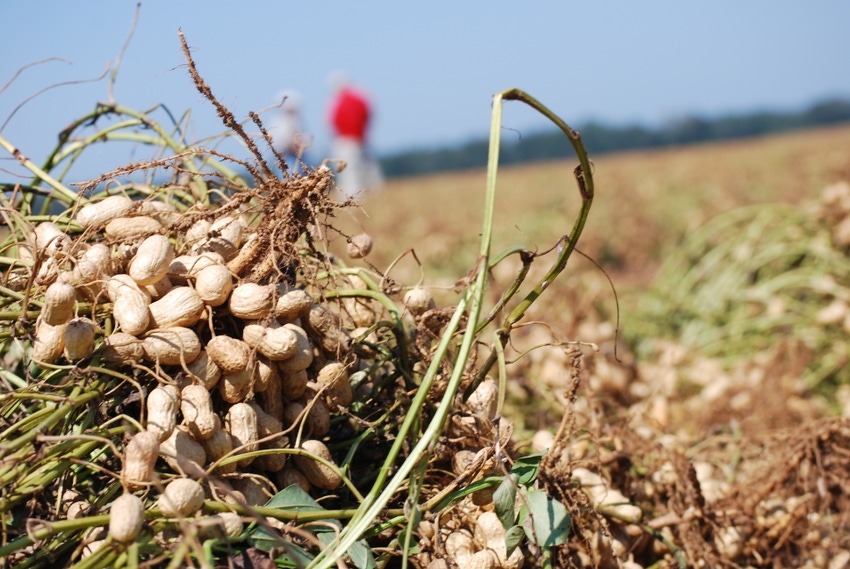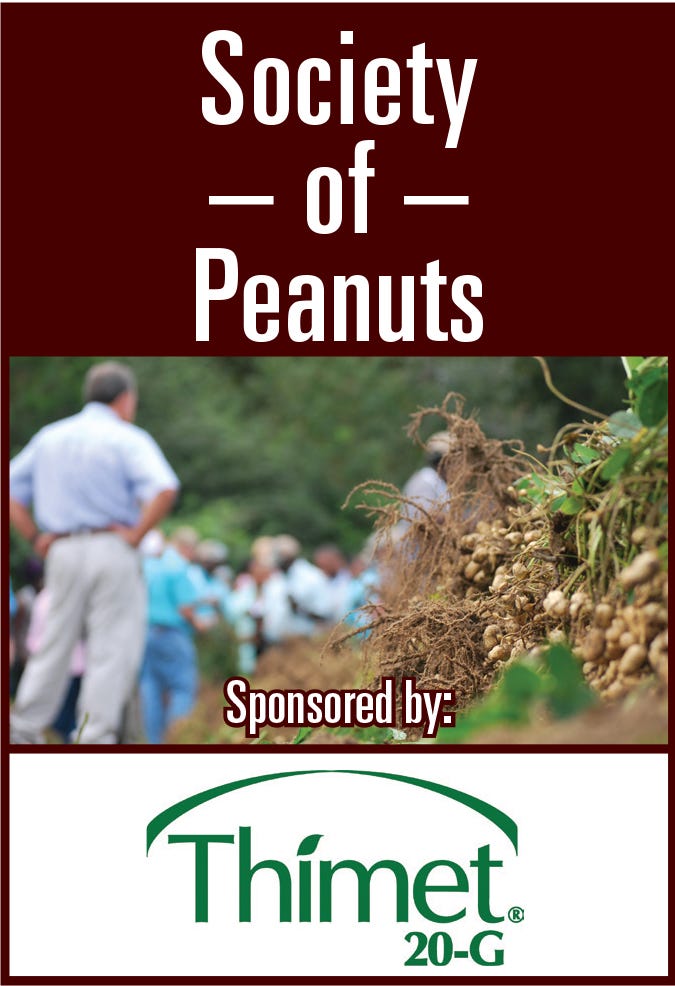
While the American Peanut Research and Education Society is preparing to reflect on its half century of advancements, the organization is also looking to the next generation of scientists to ensure its and the peanut industry’s future.
“That’s very important for the health of the organization,” says Corley Holbrook, APRES past-president and USDA Agriculture Research Service supervisory research geneticist (plants). “One of our primary goals is to educate the people who are going to replace us. For years, this society has put a lot of focus on getting the students involved in the meetings.”
(EDITOR’S NOTE — This is the fourth installment of The Society of Peanut series, which is sponsored by AMVAC and its family of products for peanut growers including Thimet insecticide and Equus fungicide.)

“We’ve had a large growth in the number of students attending our meeting,” said Kimberly Cutchins, APRES executive officer. “Participation in the oral Joe Sugg Competition has been growing every year.”
In 2014, 13 graduate students competed, while in 2017, 25 students from nine universities participated — the most universities to take part in the Joe Sugg competition since its inception.
“There’s a lot of good scientists in the organization that really go out of their way to make sure the students have an opportunity to come to this meeting and present their thesis work. It’s a bit of a sacrifice from the scientists because they have to pay for this — it comes out of their budget — but everyone is happy to pay that price to get them involved,” said Holbrook. “Somebody did it for us when we were students.”
The competition also gives students an opportunity to connect with other scientists. “It’s important for students to get out there and get some practice on presenting their research and also to meet other scientists from other areas because if they’re a master’s student, it may lead to an assistantship for a PhD or if they’re a PhD student, it may lead to a job opportunity,” he said.
Often graduate students return to the APRES meeting in a professional capacity. “The Joe Sugg Competition helps to facilitate this connection between the graduate students’ research and highlights how APRES is an environment that seeks to nurture the next generation of scientists and individuals in the agricultural industry,” said Katie Beasley, a doctoral candidate in history at Florida State University who is pulling together a timeline and history of APRES to present at the group’s 50th annual meeting in July.
In addition to the oral competition, APRES will also host its first graduate student poster contest.
The APRES 50th annual meeting celebration will be held July 10-12 at Williamsburg, Va.
“It’s a wonderful forum for folks who are involved in all aspects of the peanut industry from the production aspect to the processing aspect to the storage. It’s a forum where everyone can come together and really share ideas and develop teams to focus on research, to try to solve some of the current problems and address some of the current issues that we project will be occurring in the future,” says Pete Dotray, APRES president and professor and Extension weed specialist with Texas A&M.
“It’s very much educationally focused, not only educating those working in the peanut industry but that next generation of folks who are coming to the meeting as graduate students and undergraduates to try to get them more involved on the peanut side with the hopes they will choose a career in the peanut industry and will continue to carry that torch forward addressing the issues peanut related,” Dotray said.
Moving forward
The APRES 50th celebration is titled “APRES…Celebrating our Past; Inspiring our Future.” Five guest speakers will focus on future challenges and possible solutions in front of the peanut industry. Presenter and Agricultural Engineer Chris Butts at the USDA-ARS- National Peanut Research Laboratory in Dawson, Ga., will discuss engineering issues and goals within the peanut industry.
“We’ve come a long way with mechanization, drying, storage, and quality in the 50 years APRES has been around, but we still have a lot of similar challenges we’ve faced in the past — some of those are still lingering and as long as we produce peanuts, they will probably be around,” said Butts.
One of those challenges is product uniformity and consistency. “As early in the production chain as possible, how do we accurately measure characteristics or properties such as flavor and how do we maintain those desired characteristics in our consumer products?” said Butts.
“We want to be able to measure the properties of peanuts in a raw state and predict how individual kernels will behave during processing and generate a uniform and consistent product characteristic for whatever our use is going to be as a whole roasted nut, whether it’s in a candy bar or in a jar of peanut butter.”
For example, engineering technological solutions have allowed aflatoxin detection at lower and lower concentrations, Butts says.
“You might say that’s a chemistry issue but you also get into engineering because it’s a sampling issue as well,” Butts explains. "Because the distribution of aflatoxin is so sporadic, most peanuts will test below detectable limits of aflatoxin, but you may have one kernel that is extremely contaminated. Then when you put it into a product and it gets homogenized and blended, you’ve contaminated a large quantity of good peanuts with one kernel.
“So the engineering solution is to non-destructively detect the presence or absence of aflatoxin in each individual peanut kernel and remove that kernel from the edible supply chain as early as possible in the processing chain,” he said.
Another engineering challenge is sustainability. “Engineering has a big impact on sustainability because of the energy and water consumption — delivering water in an efficient manner to the crop in a timely manner where you don’t put out more than what the crop needs or have excessive evaporative losses or runoff,” Butts said.
As consumers become more concerned about where their products come from, Butts says the peanut industry desires the ability to trace peanuts to as close to their source as possible. “Consumers and manufacturers might like to know that if their product had an exceptionally good or objectionable property, they could trace it to its original source, maybe even back to an individual farm. I don’t know if that will ever be possible but it’s a goal.”
About the Author(s)
You May Also Like






